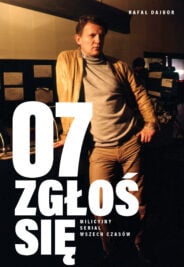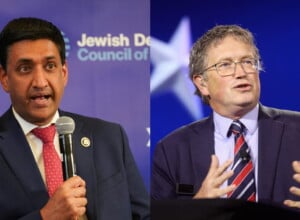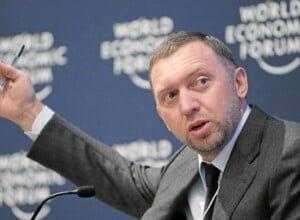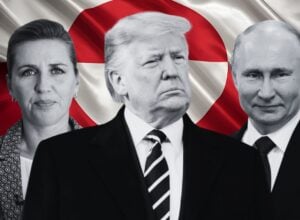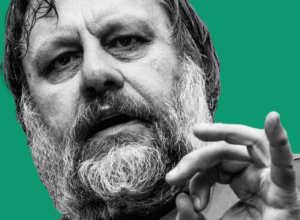„Washington Post”, trzecia co do wielkości gazeta w USA i jedna z najważniejszych dla historii wolnych mediów na Zachodzie, zdecydowała się wyjątkowo nie poprzeć w tym roku żadnego z kandydatów w wyborach prezydenckich w USA. Decyzja ta, wymuszona na redakcji przez właściciela Jeffa Bezosa, pokazuje, jak krucha jest niezależność dziennikarska w sytuacji, w której być albo nie być gazety zależy od dobrej woli miliardera.
„Washington Post” nie jest jedyny – w tym roku nikogo nie poprą również inne wielkie amerykańskie gazety, „LA Times” i „USA Today”. Jednak „Washington Post” ma szczególną pozycję w USA i to jego decyzja wywołała w ostatnich dniach potężne wzburzenie. Bo WaPo to instytucja amerykańskiej demokracji.
W 1971 roku „Washington Post” nie uległ naciskom amerykańskiego rządu i opublikował materiały na podstawie tzw. Pentagon Papers, przekazanych przez sygnalistę Daniela Ellsberga tajnych dokumentów Pentagonu pokazujących, jak naprawdę wyglądała sytuacja w Wietnamie. Z dokumentów wynikało, że kolejne administracje świadomie okłamywały Amerykanów. Okazało się, że wojska amerykańskie nielegalnie bombardowały Kambodżę i Laos, Lyndon B. Johnson wbrew kampanijnym zapowiedziom wysłał do Indochin więcej żołnierzy, choć wojskowi eksperci informowali prezydentów, że zwycięstwo w tej wojnie jest co najmniej wątpliwe.
Rola „Washington Post” w ujawnieniu prawdy, którą przez lata ukrywano przed społeczeństwem, była bardzo duża. Co prawda pierwsze artykuły ukazały się w „New York Timesie”, jednak po trzech tekstach sąd zablokował dalsze publikacje. Waszyngtoński dziennik postanowił opublikować materiały Ellsberga mimo gróźb ze strony administracji Richarda Nixona – w tym słabo zawoalowanej sugestii, że za publikację mogą grozić zarzuty zdrady stanu. „Post” wraz z „Timesem” był stroną w procesie o dostęp do tajnych akt, który prasa wygrała, ale ostateczna decyzja Sądu Najwyższego nastąpiła dopiero po publikacjach WaPo.
„Washington Post” odegrał też główną rolę w ujawnieniu afery Watergate (1972–1975). Reporterzy Bob Woodward i Carl Bernstein przeprowadzili śledztwo dziennikarskie, w trakcie którego okazało się, że coś, co z pozoru było tylko włamaniem do biura Partii Demokratycznej, faktycznie było próbą nielegalnego podsłuchiwania konkurentów politycznych zleconą przez samego Richarda Nixona.
Efektem godnego podziwu dziennikarskiego śledztwa była – poza dochodzeniami, którym Nixon próbował głowę ukręcić naciskami na Departament Sprawiedliwości i w wyniku których zarzuty postawiono niemal 70 osobom, a niemal 50 skazano – rezygnacja Nixona z urzędu prezydenta. Sam Nixon za kratki nie trafił tylko dlatego, że Gerald Ford, który jako wiceprezydent przejął po nim urząd głowy państwa, postanowił swojego byłego szefa ułaskawić. Długofalowym zaś efektem Watergate było wprowadzenie normy, zgodnie z którą Departament Sprawiedliwości cieszy się niezależnością od Białego Domu, zwłaszcza w prowadzeniu śledztw przeciwko administracji – normy, której nienawidził Donald Trump i której wraz z kolegami od Project 2025 najchętniej ukręciłby łeb.
Obie historie trafiły na ekrany kin – Watergate już w 1976 roku jako Wszyscy ludzie prezydenta. Historia wycieku tajnych akt Pentagonu musiała poczekać nieco dłużej, bo do 2017 roku, gdy premierę miała nominowana do Oscara Czwarta władza w reżyserii Stephena Spielberga. Ten drugi film sugeruje, że to publikacja artykułów na podstawie tajnych dokumentów przez waszyngtoński dziennik stała się katalizatorem decyzji innych redakcji, które również postanowiły nie uginać się pod groźbami administracji Nixona. Kolejną zawartą w filmie sugestią jest to, że gdyby nie ta decyzja gazety, byłoby jeszcze trudniej (choć łatwo nigdy nie było) rozliczać prezydentów z ich kłamstw i przestępstw popełnianych na urzędzie.
Choć filmy mają to do siebie, że historie o nudnej i żmudnej pracy dziennikarskiej ubogacają tak, żeby widzowie nie zasnęli, to dwóm rzeczom nie można zaprzeczyć. Po pierwsze, w obu przypadkach prasa postanowiła postawić się rządzącej administracji pomimo poważnych gróźb. Druga jest taka, że „Washington Post” obok „New York Timesa” odegrał w tym bardzo istotną rolę i dzięki temu stał się synonimem dziennikarskiej rzetelności i odwagi.
„Washington Post” nie zawsze otwarcie udzielał poparcia dla któregoś z kandydatów w wyborach prezydenckich. Ten zwyczaj, dość typowy dla amerykańskich dzienników, tygodników, i miesięczników, gazeta przyjęła dopiero w 1976 roku, podczas gdy „New York Times” robi to od roku 1852, czyli od swojego powstania. Tym razem jednak, na 11 dni przed wyborami, piórem swojego prezesa Williama Lewisa (o którym nieco więcej za chwilę) WaPo ogłosił, że w bieżącym roku znów nikogo nie poprze. Decyzję uzasadniono powrotem do tradycyjnej bezstronności – jednak nieudzielenie spodziewanego poparcia Harris na tak krótki czas przed głosowaniem zostało przyjęte bardzo źle. Woodward i Bernstein, legendy dziennikarstwa, napisali we wspólnym oświadczeniu, że decyzja o tym, by nie popierać Harris, „zaskakuje i rozczarowuje”.
Mniej gryzł się w język były redaktor naczelny gazety Marty Baron, który nazwał ją „tchórzostwem”. W proteście z redakcji odeszły osoby o bardzo rozpoznawalnych nazwiskach: Robert Kagan, Michelle Norris, David E. Hoffman i Molly Roberts. Reakcja czytelników też wygląda brutalnie: gazeta straciła już ćwierć miliona – czyli aż 10 proc. – z 2,5 mln prenumerat.
Prawda jest taka, że poparcie ze strony „Washington Post” – lub jego brak – nic najpewniej nie zmieni ostatecznym wyniku wyborów. Problem leży gdzie indziej: kto faktycznie podjął tę decyzję i z jakiego powodu.
Wiemy, że redakcja zamierzała poprzeć Harris. Byłoby to zresztą logiczną konsekwencją wielu już lat skutecznego rozpracowywania skandali związanych z Donaldem Trumpem. Stanowisko w sprawie poparcia leżało na biurku właściciela gazety, Jeffa Bezosa, przez kilka tygodni i według anonimowych źródeł to właśnie on podjął decyzję o tym, aby go nie publikować, a polecenie to zostało przekazane redakcji podczas bardzo burzliwego kolegium. Dziennikarze i czytelnicy odebrali to jako niedopuszczalną ingerencję w niezależność redakcji ze strony jej właściciela, za którą to stały względy czysto biznesowe.
Głównym źródłem dochodu Bezosa jest Amazon. Amazon Web Services, spółka Bezosa zajmująca się dostarczaniem usług komputerowych w chmurze, otrzymał wiele rządowych kontraktów, w tym od Agencji Bezpieczeństwa Narodowego, Departamentu Obrony, CIA i Marynarki Wojennej. Tylko ten pierwszy podpisany został w 2022 roku na 10 lat i wart jest 10 miliardów dolarów. Inna spółka Bezosa, Blue Origin, zajmująca się między innymi lotami w kosmos, też żyje w dużej mierze z kontraktów rządowych. W 2023 roku NASA zdecydowała, że to właśnie firma Bezosa (a nie główna konkurencja, czyli SpaceX Elona Muska) otrzyma zadanie skonstruowania nowego lądownika księżycowego dla misji Artemis V. Ten kontrakt wart jest 3,4 miliarda.
W porównaniu do tych maszynek do robienia pieniędzy „Washington Post” jest studnią bez dna. Między 2020 a 2023 rokiem liczba unikalnych wejść na stronę internetową gazety spadła o połowę, ze 101 milionów do 50 milionów. Rok 2023 gazeta zakończyła ze stratą 77 milionów dolarów – a to tylko problemy finansowe z ostatnich kilku lat.
Oczywiście, Bezos nie kupił w 2013 roku legendarnego dziennika (za raptem 250 milionów dolarów, gdy gazeta była w poważnych tarapatach), bo były mu potrzebne pieniądze – jest drugim najbogatszym człowiekiem na świecie, więc kasy ma jak lodu. Była to raczej odpowiedź na wciąż panującą w USA normę, zgodnie z którą richesse oblige.
Świetnym przykładem tego podejścia był przemysłowiec Andrew Carnegie, jeden z najbogatszych ludzi w nowożytnej historii, który oprócz tego, że zarabiał krocie na ciężkiej pracy robotników w hutach stali, to inwestował ogromne sumy w obiekty kultury. Dzięki pieniądzom od Carnegiego w USA powstało na przykład ponad 1700 bibliotek, a także jedna z najsłynniejszych sal koncertowych świata, Carnegie Hall na Manhattanie.
Wiele wskazuje na to, że Carnegie całkiem szczerze, jeśli dość naiwnie, wierzył w to, że bajecznie bogaci ludzie mają swoje zobowiązania wobec społeczeństwa, od tamtej pory czasy się nieco zmieniły i tego rodzaju działania są traktowane teraz instrumentalnie jako budowanie wizerunku. W końcu nawet Sacklerowie, którzy dorobili się fortuny na wpędzeniu milionów Amerykanów w uzależnienie, skwapliwie rozdawali pieniądze instytucjom kultury i uniwersytetom po obu stronach oceanu.
Dzięki tej inwestycji Bezos, który swoje bogactwo zbudował na niszczeniu małych biznesów i wyzysku pracowników, zmienił swój wizerunek z bezwzględnego kapitalisty na światłego człowieka ratującego dobro publiczne absolutnie niezbędne demokracji. Mimo obaw nie ingerował też w linię redakcji. Za jego czasów „Washington Post” opisywał inwigilację pracowników w Amazonie czy fakt, że pracownikom magazynów Amazona wypadki w pracy zdarzają się dużo częściej niż pracownikom innych firm – opatrując te materiały tytułami, które nie pozostawiały złudzeń co do odpowiedzialności korporacji.
Złym omenem było zatrudnienie na stanowisku prezesa „Washington Post” wspomnianego Williama Lewisa w celu ratowania tonącej redakcji. Lewis, który przeszedł do waszyngtońskiego dziennika z „Wall Street Journal”, miał za uszami całkiem sporo. Ciągnęła się za nim sprawa nielegalnego hakowania telefonów w celu wykradzenia informacji, gdy jeszcze zasiadał w kierownictwie należącej do Ruperta Murdocha (tak, tego od Fox News i nie tylko) „New International”. Gdy „Washington Post” chciał napisać o tym, że Lewis podejrzewany jest w Wielkiej Brytanii o niszczenie dowodów, prezes naciskał na redakcję, by tę publikację sobie odpuściła. Fakt, że to właśnie Lewis zakomunikował decyzję czytelnikom w dość miałkim tekście, powołując się – o ironio – na konieczność utrzymania standardów dziennikarskich, nie powinien już dziwić.
W tym kontekście dość zrozumiała jest pokusa, żeby odpowiedzialność za potencjalne zaoranie jednej z najważniejszych gazet na świecie zrzucić na myślącego wyłącznie o zysku miliardera i jego lokaja, który brak kręgosłupa udowodnił już niejeden raz. To oczywiście prawda, że Katherine Graham, właścicielka i szefowa „Washington Post” za czasów Pentagon Papers i afery Watergate, miała zdecydowanie więcej odwagi cywilnej i poczucia przyzwoitości.
Problem jest jednak dużo głębszy i wieloaspektowy. Jak zauważył Jeffrey Isaac, profesor nauk politycznych na Indiana University Bloomington najważniejsze media w USA są obecnie własnością ultrabogatych miliarderów i choć pełnią one nadzwyczaj istotną funkcję publiczną, nie są już zasobem publicznym. Druga co do wielkości gazeta, „The Wall Street Journal”, należy do News Corp. Ruperta Murdocha. Właścicielem „The Boston Globe” jest John Henry, którego głównym źródłem dochodu są kluby sportowe po obu stronach oceanu. „The LA Times”, który też odmówił poparcia Harris, jest w rękach Patricka Soon-Shionga, przedsiębiorcy w branży biotechnologicznej. Miesięczniki „The Atlantic” i „Time” należą, odpowiednio, do Laurene Powell Jobs i Marka Benioffa.
Do tego warto dodać, że wiele innych gazet i periodyków, zwłaszcza na poziomie lokalnym, jest własnością funduszy inwestycyjnych, które odpowiedzialne są przede wszystkim przed swoimi udziałowcami (tu palce maczał Warren Buffet). Problem jest zatem strukturalny.
Pojawienie się mediów internetowych doprowadziło do załamania się modelu biznesowego mediów tradycyjnych, czyli funkcjonowania dzięki sprzedaży reklam. (Jak zauważył jeden z badaczy, zadanie gazet nie polegało na dostarczaniu informacji i opinii czytelnikom, tylko na dostarczaniu czytelników reklamodawcom). Tych utraconych dochodów nie udało się w pełni wyrównać. Mówiąc wprost, „Washington Post” mógłby już nie istnieć lub stoczyłby się do rangi małej, nierzetelnej gazety, gdyby w 2013 roku Bezos nie uratował sytuacji. W podobnym położeniu były „The Globe” i „LA Times” a w jeszcze bardziej dramatycznym lokalne gazety.
W tym kontekście warto zauważyć jedną rzecz. Miliarderzy w rodzaju Elona Muska czy Petera Thiela zainwestowali niemało, żeby Trump znalazł się w Białym Domu i żeby podstawiona przez nich marionetka w osobie J.D. Vance’a zawsze była jak najbliżej niego. W zamian za zasponsorowanie zwycięstwa liczyli na odpowiednie regulacje – i najpewniej możliwość realizowania swoich zawsze i całkowicie poronionych pomysłów społeczno-politycznych. W przeciwieństwie do dwóch wymienionych postaci Bezos nie należał do grupy otwarcie zakochanych w Trumpie technofaszys… – przepraszam, technolibertarian. Mimo to podjął decyzję, jaką podjął.
Jak zauważył również Isaac, decyzja Bezosa o nieudzieleniu poparcia Kamali Harris świadczy o tym, że nie tylko bierze on na poważnie możliwość wygranej Trumpa, ale że serio traktuje autorytarne groźby ze strony Trumpa i jego popleczników. Opinia Trumpa na temat „Washington Post”, „New York Timesa” i innych mediów, które zalazły mu za skórę, opisując rozmaite skandale, jest dobrze znana, jednak jego zemsta nie dotyczyłaby jedynie gazet. Ich zresztą nie miałby pewnie jak dotknąć. Inna sprawa to rządowe kontrakty Amazon Web Services czy Blue Origin.
Kandydujący na wiceprezydenta J.D. Vance mówił też wprost, że administracja Trumpa powinna wykorzystać regulacje podatkowe do rozliczenia się ze swoimi przeciwnikami politycznymi. Vance wspominał o tym w kontekście funduszy powierniczych uniwersytetów, które uważa za wylęgarnię lewactwa, ale jasne jest, że to samo narzędzie można wykorzystać również, a może i przede wszystkim, wobec firm i korporacji nastawionych na zysk. Można się spodziewać, że takie metody, kojarzone przede wszystkim z dużo bardziej autorytarnymi państwami (kontrakty dla swoich, dojeżdżanie biznesów oponentów), będą z powodzeniem stosowane wobec innych, którzy nie staną pokornie w szeregu. To zaś powoduje, że stawka tegorocznych wyborów prezydenckich w USA jest jeszcze wyższa, niż mogło się wydawać.
Nie powinien zatem dziwić fakt, że Jeff Bezos przehandlował niezależność redakcji za interesy biznesowe. Anulowanie prenumerat, choć zrozumiałe (co warte jest nawet najlepsze dziennikarstwo, jeśli linia redakcyjna jest w tak oczywisty sposób zależna od interesów?) najpewniej nie będzie wystarczającym sygnałem dla Bezosa i innych miliarderów. Dużo bardziej dotkliwe byłoby utrata 10 proc. subskrypcji Amazon Prime, ale rezygnacja z wygodnych zakupów z dostawą pod dom jest trudniejsza niż rezygnacja ze źródła informacji – zwłaszcza że alternatywy wciąż są dostępne. Zresztą nie o przeorientowanie linii redakcyjnej chodziło. Wystarczył sygnał, że właściciel gazety może zarżnąć temat, jeśli taka będzie potrzeba.
Sam Bezos oczywiście temu zaprzeczył, ale po ogłoszeniu decyzji w sprawie niepoparcia Harris szefostwo Blue Origin spotkało się z Donaldem Trumpem. Do rozmowy doszło pod terminalem dla prywatnych samolotów na lotnisku w Austin w Teksasie, a wiemy o niej dlatego, że uchwycił ją fotograf Associated Press.
Tradycyjne media, które były ostoją rzetelności i uczciwości, straciły powszechne zaufanie społeczne (w dużej mierze, dodajmy, po bezkrytycznym poparciu wojny w Iraku, ale źródła kryzysu zaufania to temat na oddzielny tekst), a media internetowe tej luki nie wypełniły. Pytanie o to, czy w dzisiejszym świecie ujawnienie Pentagon Papers i afery Watergate byłoby w ogóle możliwe, jest całkiem zasadne.

 Wspieraj
Wspieraj 

 Wspieraj
Wspieraj  Wydawnictwo
Wydawnictwo 
 Przekaż
Przekaż 


